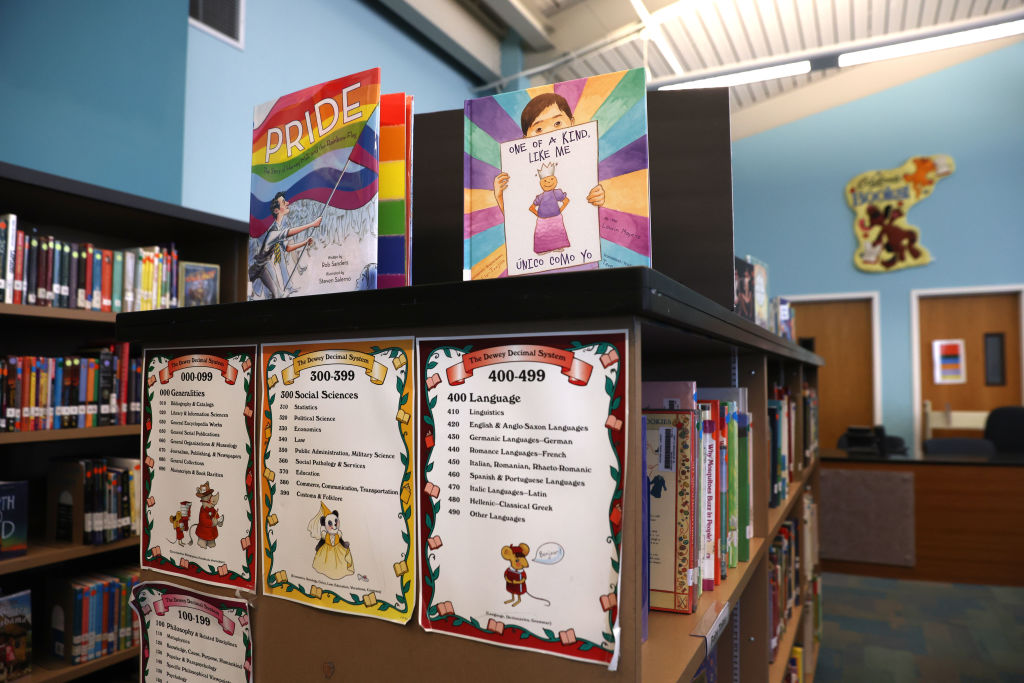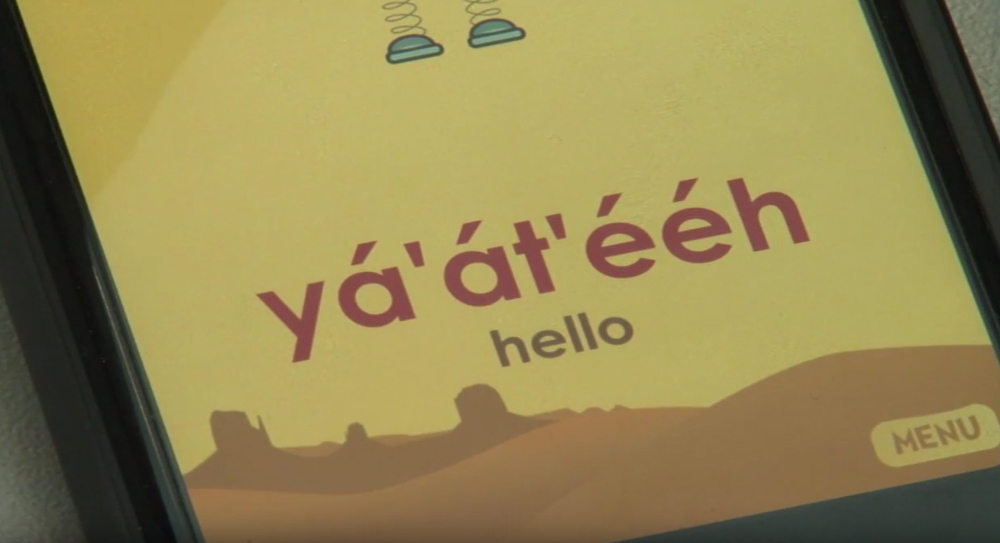In New Jersey, Karen Grant and other school librarians have heard a growing chorus of conservative activists and parents calling for the removal of books from the shelf that frequently deal with issues of race, gender, and sexual orientation.
Grant and her coworkers at the Ewing Public Schools, located just north of Trenton, revised a three-decade-old policy last year regarding parents’ objections to publications they deem improper or obscene. Without a new policy, Grant’s team was afraid the district might give in to pressure to ban particular books.
At about the same time, Trenton state legislators were drafting legislation to establish a book challenge policy for the entire state, which would prohibit book bans based only on the subject matter of a book or the background or opinions of its author. It would also shield public and school librarians from civil or legal liability from individuals who were offended by the books they provided.
Grant felt a little more at ease when Democratic Governor Phil Murphy signed the bill into law last month.
According to Grant, who is president of the New Jersey Association of School Librarians and works at Parkway Elementary School, “we just hear so many stories of our librarians feeling threatened and targeted.” This has to be corrected because it has been inaccurate and unfair.
A increasing number of blue states are adopting the opposite stance in the face of a nationwide increase in school library book bans and new legislation in some Republican states that threatens to criminalize librarians.
State officials are showing that the right to read is a value that is upheld and safeguarded, and that censorship has no place in their state.
Director of PEN America’s Freedom to Read initiative, Kasey Meehan
In the last two years, New Jersey joined at least five other states—California, Illinois, Maryland, Minnesota, and Washington—that have enacted laws to protect access to books that address racial and sexual themes, particularly those pertaining to the LGBTQ+ population.
Conservative organizations support the removal of content they claim is detrimental.
To protect children from what they consider to be dangerous information, conservative organizations have spearheaded the push to outlaw some items. According to a new research by PEN America, a nonprofit organization that promotes literary freedom, there were 10,000 book bans in the United States during the 2023–24 school year, which is almost three times as many as the previous year.
In the same way as drugs, alcohol, Rated R films, and tattoos are bad for kids, so are some books. An email was sent by Kit Hart, chair of the Carroll County, Maryland, chapter of Moms for Liberty, a nationwide group spearheading the book banning initiative.
Now, however, several governments are protecting librarians and the books they provide.
State leaders are demonstrating that censorship has no place in their state and that the freedom to read is a principle that is supported and protected, said Kasey Meehan, director of the Freedom to Read program at PEN America, which has been tracking book bans since 2021.
But there is still a strong push to outlaw specific books. While a handful of states fight censorship in school libraries, some communities within those states are attempting to retake local control and continuing to remove materials that conservative local officials regard as lurid and harmful to children.
The New Jersey measure prohibits school districts from removing library materials based on their origin, background, or opinions, as well as those who contributed to their creation. It also establishes minimum standards for localities when they adopt policies on how books are curated or can be challenged.
The law also gives librarians immunity from civil and criminal liability for good faith actions.
We are not getting rid of books : How libraries across Idaho are implementing new materials law
New Jersey state Sen. Andrew Zwicker, a Democrat who introduced the legislation, said until recently he thought that book bans were a disturbing trend, but one limited to other states. But early last year, he went to a brunch event and met a school librarian who told him she faced a torrent of verbal and online abuse for refusing to remove a handful of books with LGBTQ+ themes from her library s shelves.
That s when I realized that I was so horribly mistaken, that these attacks on librarians and on the freedom to read were happening everywhere, Zwicker told Stateline. I went up to her and asked, What can I do?
He said he s already heard from lawmakers in Rhode Island who are considering introducing a similar measure this year.
A child who identifies with the LGBTQ+ community can read a memoir likeGender Queerby Maia Kobabe and feel seen for the first time in their lives, he said.
I do not think it s an overstatement to say that lives are in the balance here, that these books are that important to people, and that librarians are trusted gatekeepers to ensure that what s on the shelf of a library has been curated and is appropriate, Zwicker said.
These new state laws, several of which are titled the Freedom to Read Act, passed almost entirely along party lines, with unanimous Democratic support.
In New Jersey, Republican state Assemblywoman Dawn Fantasia, who has worked in schools for the past 18 years, including as an English teacher, vehemently opposed the measure. She did not respond to an interview request.
This isn t puritanical parents saying, Oh, I don t want my child to learn how babies are made,she saidduring a September committee hearing. That s ridiculous, and we all know it.
She added, What I do want is for us to be able to have an honest conversation about some of what is in these texts that is extraordinarily inappropriate for that grade level.
Legislation differs by state, including in enforcement and how to penalize noncompliant localities.
In Illinois, for example, school districts risk losing thousands of dollars in state grant funding if they violate the state s new law discouraging book bans. But as the Chicago Tribunereported last month, that financial penalty was not enough to persuade many school districts throughout the state to comply, with administrators saying they are concerned about giving up local control on school decisions.
Several school districts in other states have similarly rebelled.
North of Minneapolis, St. Francis Area Schools board last monthdecidedit would consult with conservative group BookLooks to determine which books it will buy for its school libraries. BookLooks uses a 0-through-5rating systemthat flags books for violent and sexual content.
Under its rating system, books that have long had a place in school libraries such as the Holocaust memoir Night by Elie Wiesel or I Know Why the Caged Bird Sings by Maya Angelou would require parental consent to read.
Asked about the school district potentially violating state law, school board member Amy Kelly, who led the drive to use BookLooks, declined to be interviewed. Karsten Anderson, superintendent of St. Francis Area Schools, also declined an interview request.
In Maryland, Carroll County schoolsledthe state in banning books in recent years, removing in the 2023-24 school year at least 59 titles that were sexually explicit, according to a tally by PEN America.
Schools should not allow children to see kink and porn, wrote Hart, of Moms for Liberty. She got involved in the effort more than three years ago, saying she wanted to protect her five children and parents rights to make educational decisions.
She pointed to one book to make her point:Let s Talk About It: The Teen s Guide to Sex, Relationships, and Being a Human, a nonfiction book in graphic novel form by Erika Moen and Matthew Nolan that seeks to educate teenagers about anatomy and consensual and safe sex. The book explores other issues of gender and sexuality, as well. Hart likened the book s illustrations showing different ways of having sex to erotica.
Parents who provide their children with alcohol or drugs, or to give them a tattoo would rightly be charged with crimes, she wrote Stateline in an email. Schools that provide children with sexually explicit content are negligent at best.
GET THE MORNING HEADLINES.
Around 8,000 of the more than 10,000 instances of banned books during the 2023-24 school year were in Florida and Iowa schools, according to PEN America. Lawmakers in those states enacted legislation in 2023 that created processes for school districts to remove books that have sexual content.
Iowa nowrequiresthat reading materials offered in schools be age-appropriate, while the Floridalawensures that books challenged for depicting or describing sexual conduct be removed from shelves while the challenge is processed by the district.
Some of those banned booksincludedclassics, such as Roots by Alex Haley and A Tree Grows in Brooklyn by Betty Smith.
Over the past year, lawmakers in Idaho, Tennessee and Utah passed measures that ban certain reading materials that deal with sex or are otherwise deemed inappropriate, according toa December reportfrom EveryLibrary, an Illinois-based organization that advocates against book bans. Arizona Democratic Gov. Katie Hobbsvetoedsimilar legislation in June.
Laws that allow for book bans have been the subject ofseveral lawsuitsin recent years, as plaintiffs argue those measures violate constitutional protections of free expression.
Late last month, a federal judgestruck downparts of a 2023 Arkansas law that threatened prison time for librarians who distribute harmful material to minors. Arkansas Attorney General Tim Griffin, a Republican, announced the state would appeal the decision.
EveryLibrary istracking26 bills in five states that lawmakers will consider this year that would target books with sexual and racial themes.
The organized effort to remove books because of LGBTQ+ or racial themes will continue, said Deborah Caldwell-Stone, director of the American Library Association s Office for Intellectual Freedom.
The association, whichtracksbook bans as part of its mission to support libraries and information science, found that most of thetop banned booksaround the country had LGBTQ+ protagonists.
Librarians have always been all about providing individuals with access to the information they need, whether it s for education, for enrichment, for understanding, she said in an interview. Censorship is diametrically opposed to that mission.
Stateline,like the Idaho Capital Sun, is part of States Newsroom, a nonprofit news network supported by grants and a coalition of donors as a 501c(3) public charity. Stateline maintains editorial independence.
YOU MAKE OUR WORK POSSIBLE.



